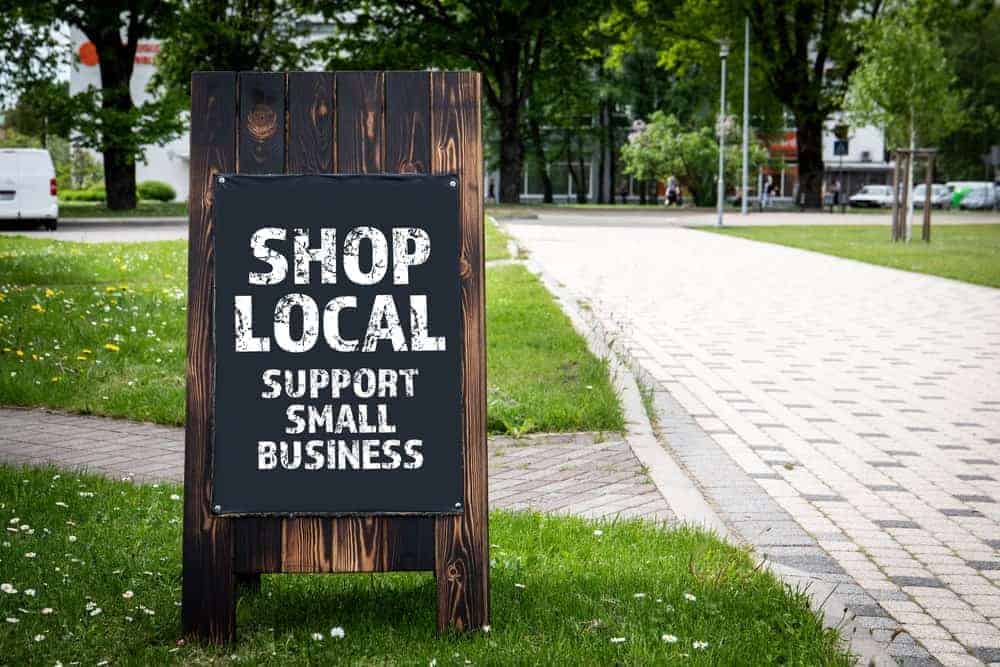There are two kinds of small businesses thriving in today’s economy: e-commerce web stores and local businesses with a strong online presence.
In a world where we look up everything online before making a decision, your online presence literally puts you “on the map” or off it.
Additionally, in a post-COVID world where window shopping and in-person store visits are at an all-time low, your online presence has become essential even for local customers within a few miles of your storefront.
With all that said, there are essential questions and answers about local SEO.
As a local business, how can you ensure that your listing appears in searches for local services? How do you ensure that customers within your local service area know about your business so they can visit or order same-day delivery?
The answer is Local SEO, the art of refining your Search Engine Optimization tactics specifically to appear in local searches.
Our Top Questions and Answers About Local SEO.
Let’s explore the top 6 frequently asked questions and answers about local SEO we encounter in our agency on a day-to-day basis with current and potential clients:
1. What Is Local SEO, & How Is It Different from Standard SEO?
Most brands and business people today understand the basics of normal website SEO.
You optimize your site content (and structure and metadata) for certain keywords and keyword clusters that relate to your business.
This allows your website and specific pages in your website to “rank” and appear when users search for those phrases.
However, normal SEO is global.
Any user anywhere might see your website as a search result. This is potentially great, but not necessarily useful if your services are only available in a 5-50 mile radius around your business’s physical location.
Regular SEO is for drop-shipping brands, sharing useful content, and building site authority.
Local SEO is for attracting local customers.
Ranking for Local SEO means appearing as a relevant search result within that limited-mile radius of local customers.
It is how Google and other search engines identify your business as having a location that local customers should be informed about – and what services you have to offer those customers.
Approximately 1 in 3 searches relate to nearby locations, businesses, and services.
If you want to put yourself on the map as a local business, you’ll need to build your Google My Business listing and optimize your website to SEO for your service area.
This will cause that little pinpoint to appear as a search recommendation when a customer searches for a nearby business like yours to visit or order same-day delivery.
2. How Do You Force Google to Display Business Results?
Ideally, when a user searches for a local business like yours (ex: “hardware store near me”), Google will show one or several top business profiles on the main search page, usually underneath a snippet of the local map to show store locations.
However, it doesn’t always.
Google decides which presentation format is most likely relevant to the user’s search and, to be frank, there is nothing a business can do to force their profile to appear in the immediate search result.
The best thing you can do is to put yourself on the map and gain authority.
Users who want to see business profiles and don’t will often click right over to the map – a live array of any nearby business that suits their search.
If your GMB profile is complete, you’ll be on that map. If there’s local competition, you’ll also want to build authority with ratings and reviews so that your pinpoint appears at the top of the list.
3. What Types of Businesses Can Use Local SEO?
Local SEO works for a wide variety of businesses. The only limitation is that you must be available locally.
Local SEO is for any business that has a storefront, runs a local venue, provides same-day local delivery, or offers a local field service.
In fact, you can still rank for local searches even if your business has transitioned to entirely no-contact and online services.
The only type of business that Local SEO is not for is purely online companies. Google has been known to penalize businesses for creating fake or borrowed local addresses to achieve more rankings.
If your business cannot be visited and does not offer services from a local venue, don’t worry about local SEO because you can gather clients from anywhere in your state, nation, or across the globe.

4. How Do You Compete In Cities and Towns Outside of Your Physical Location?
So what if your service area is larger than the range you are shown in local searches?
An HVAC company, for example, may serve their local city and all the surrounding towns for maintenance and installation.
But GMB tends to only show results within a few short miles from the searcher’s home or current location. How do you compete in the outlying cities and towns inside your service area, but distant from your business venue?
This is another moment when you’re working against the GMB algorithms.
Normally, local searches prioritize about a 3-10 mile radius around the user because it assumes people want a place very nearby to visit.
Your best bet is to use localized SEO tactics to rank your pages instead of your GBP profile.
For example, you can make individual service pages for each city and neighborhood you serve.
Adding positive reviews from clients in those neighborhoods provides the needed social proof that increases relevancy and credibility.
You can feature your service area map on your homepage.
You can post a picture of your service area map on your GBP profile and list cities inside your service area in your GBP description.
5. Do you really need a website for local SEO success?
Yes and no.
Depending on your local competition (the density of similar local businesses nearby) and how much you care to focus your efforts on Google alone, you can go the minimal route.
For example, if you are the only donut shop in town, you might get all the search result appearances you could ask for just by having a Google Business Profile.
However, your website is the foundation of your digital presence, and today, most customers want to browse your selection and check out your company style online before they swing by or call in.
So while you can appear and even rank for local SEO without a website, you are also passing on an important stage in customer conversion and a platform for customer relations.
In addition, you are at the mercy of Google’s choice to present your business and may even see a drop in ranking after the next Google core algorithm update.
6. With my limited budget, which area of Local SEO should I focus on first?
Finally, we come down to which strategies for local SEO you should focus your efforts and investment on – initially.
Optimize Your GBP Profile
First and foremost, you must build and optimize your Google Business Profile. Claim your pin if you haven’t already. Then completely fill out your profile.
Write a helpful and detailed description, mentioning your service area, product categories, and services.
Include a few photos of the venue and products. Be sure to indicate whether you provide in-store, delivery, or pickup services.
Activate any widget like booking or online ordering that is relevant to your business. This will give Google the best possible set of information to match user searches. relevant widgets, such as booking or online ordering, for your business.
Build Core Citations
Next, make sure to claim all of the main business listings for your company, especially those that allow a robust profile and reviews.
These are called citations, and while they don’t have the same impact as they once had, they are foundational and simple to take care of.
Sites like Bing, Facebook, Yelp, Apple Maps, BBB, Angie’s List, and some of the directory sites specific to your industry.
Get More Reviews
From there, focus on improving your online reputation by devising and implementing a review generation strategy.
Initially, focus on getting reviews on Google, but diversification across multiple review sites will help establish your credibility across the web.
Build Authority
Finally, build your website authority on your subject. This means building links.
Businesses with a strongly linked website are more likely to be ranked.
You also have a much higher chance of appearing on non-mapped searches where Google chooses not to present business profiles immediately.
Instead, your ranking website pages will appear to represent your business and attract local customers.
In Conclusion
Is your business ready to compete in local searches?
While we’ve covered the top six frequently asked questions and answers about Local SEO that we get, this is only the beginning.
If you have more questions about leveraging Local SEO tactics to your advantage, let us help you hone your local SEO strategy.
Conduct a free Local SEO audit and get your free report here. With it, you’ll better understand where you stand concerning your local visibility.
We can then schedule a call to consult on your local business SEO strategy and how you can get to the top of your local rankings.



